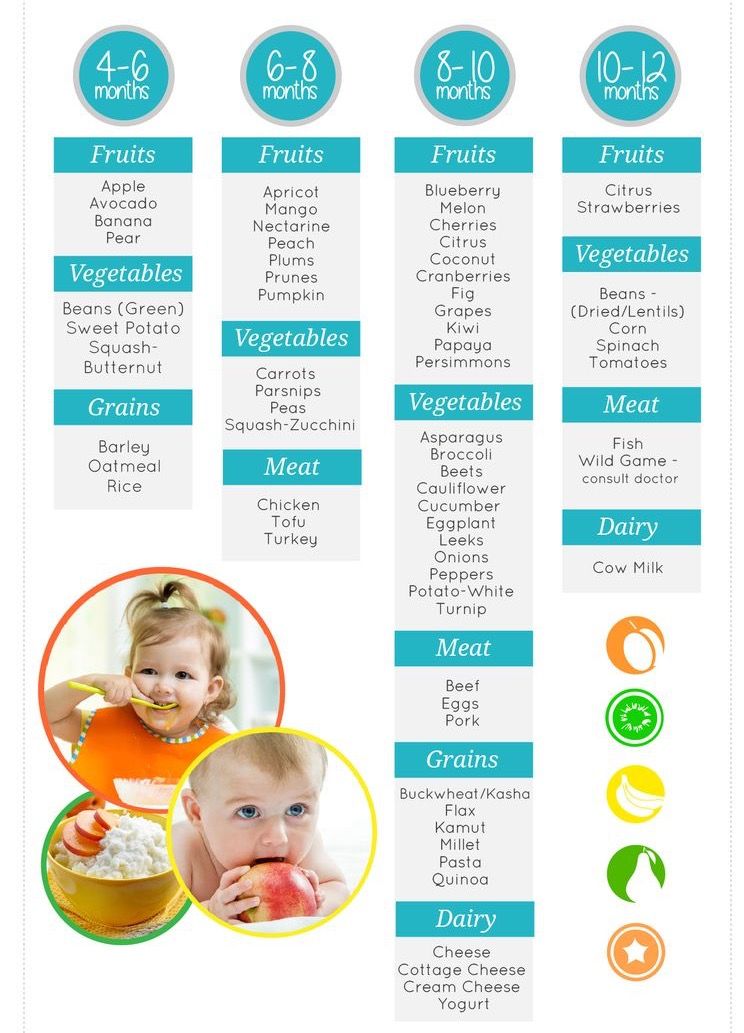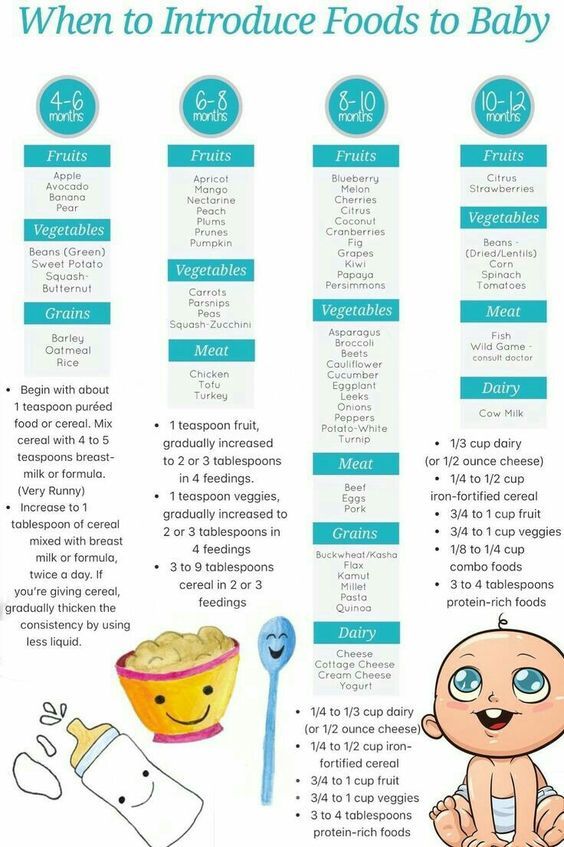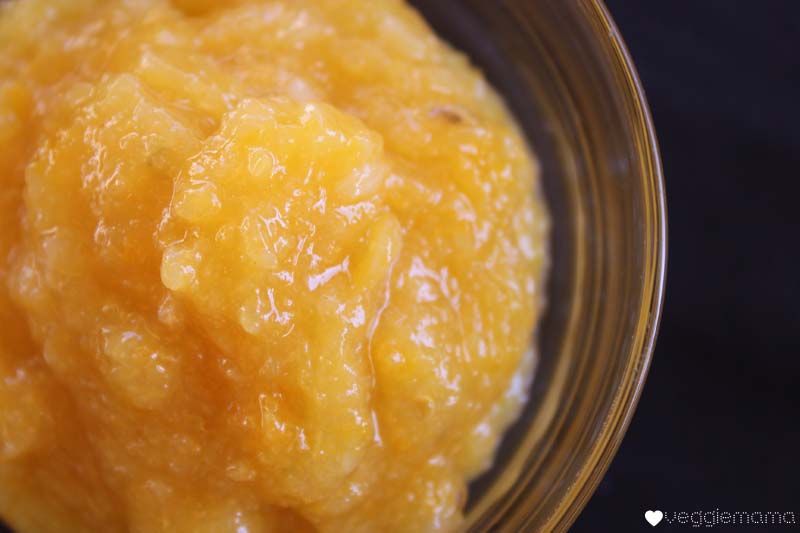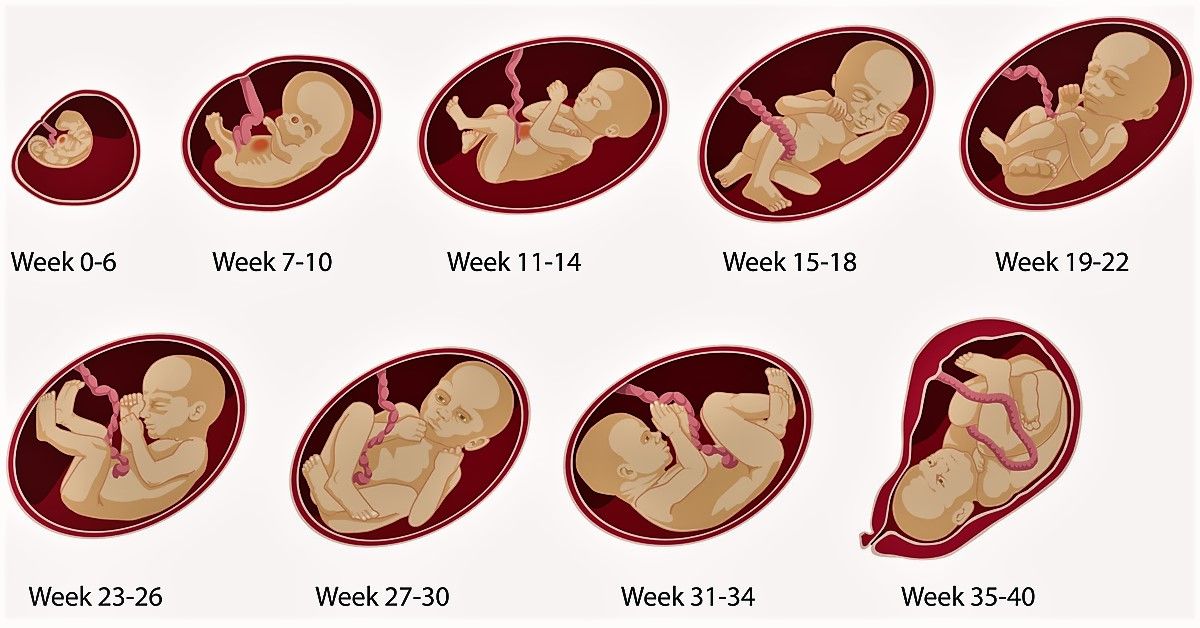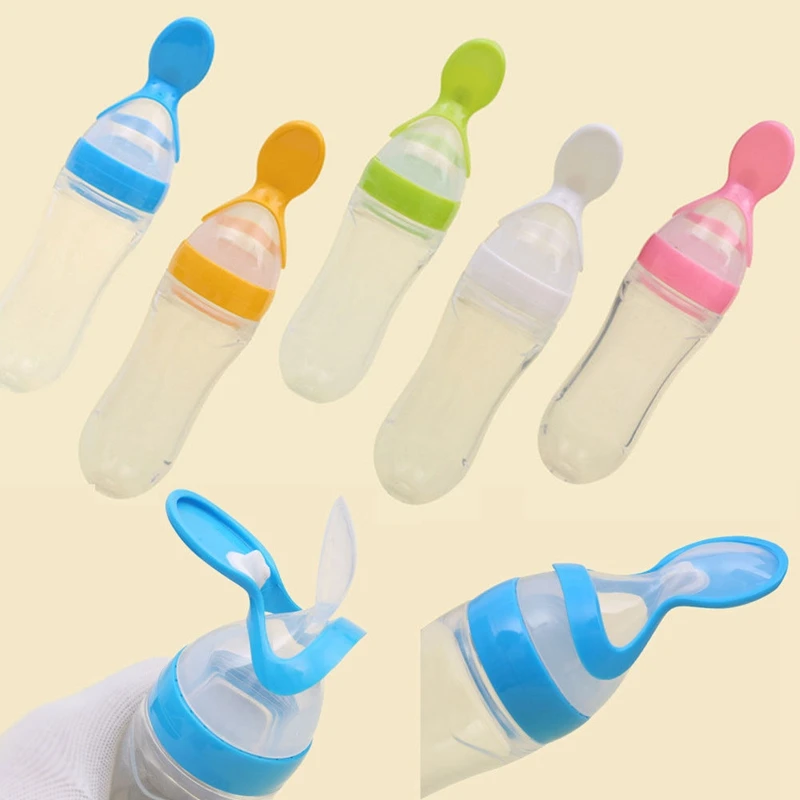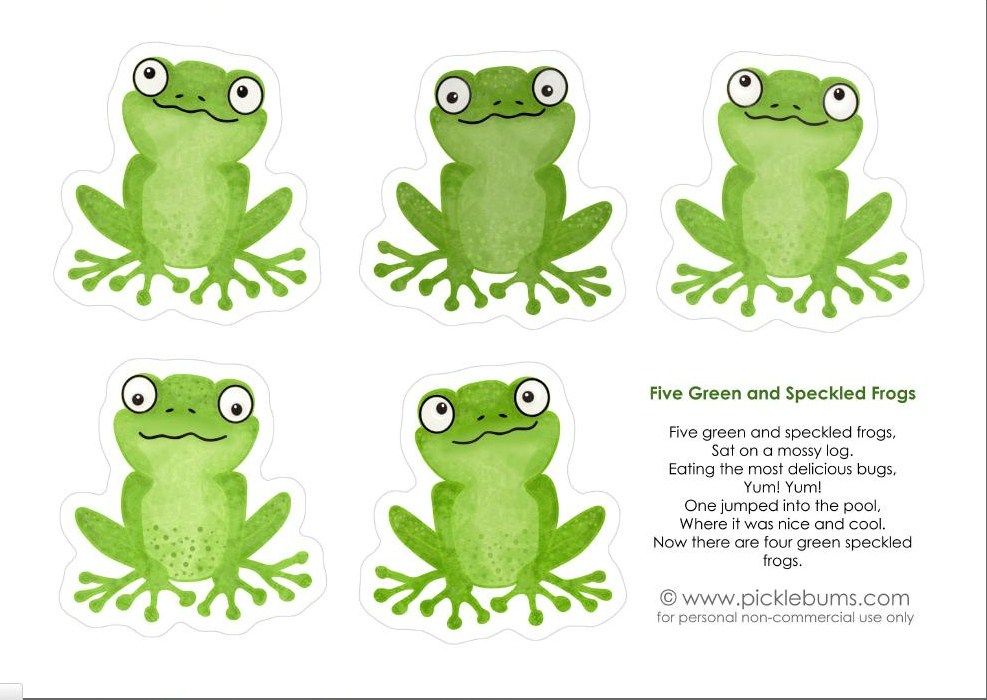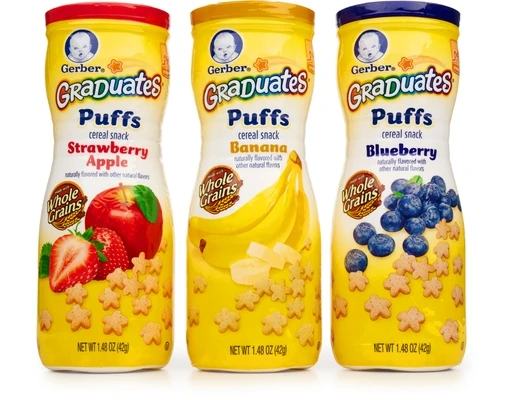Feeding baby papaya
7 Amazing Health Benefits Of Papaya For Babies
When, how and how much– everything about feeding papayas to babies safely.
Research-backed
MomJunction believes in providing reliable, research-backed information to you. As per our strong editorial policy requirements, we base our health articles on references (citations) taken from authority sites, international journals, and research studies. However, if you find any incongruencies, feel free to write to us.
Image : Shutterstock
When your little one starts eating solid foods, you might also wonder if papaya for babies is a healthy option. The ripe papaya (Carica) is a fruit frequently used as infant food and has several important nutritional and therapeutic characteristics (1). But, do the numerous advantages of this delectable fruit also apply to infants?
Continue reading this post for information on the safety of papaya for newborns, its benefits, and precautions to take.
Is Papaya Safe For Babies?
The U.S Food and Drug Administration considers papaya fruit as “generally recognized as safe (GRAS)” for infants (2). Thus, depending upon the age of your baby, you can serve papaya to the baby.
Related: 9th Month Baby Food: Feeding Schedule With Tasty Recipes
When Can Papaya Be Introduced To Babies?
Once your baby starts consuming solids with comfort, you can introduce papaya in your baby’s diet (3). Some paediatricians, in general, recommend introducing papaya to a baby around seven and eight months. However, you could introduce the fruit early, provided your baby has started solids such as apple, banana, potato, etc. A few recipes that you might consider while introducing papaya to babies are papaya puree, papaya pudding, papaya pancake, and papaya smoothie.
Please note, papaya is usually hypoallergenic. However, some cases of papaya allergy have been documented (2). Therefore, consult a pediatrician before introducing papaya to your baby.
Nutritional Value Of Papaya
Papaya is considered as one of the most nutrient-rich fruits known. It is a rich source of a potent form of vitamin-A, beta-carotene (4).
Below is the approximate composition of 100grams of raw papaya with the recommended dietary allowance of nutrients for infants.
| Name | Amount | RDA |
|---|---|---|
| Water | 88.06g | – |
| Energy | 43Kcal | – |
| Fiber, total dietary | 1.7g | – |
| Sugars, total including NLEA | 7.82g | – |
| Calcium, Ca | 20mg | 210mg (0-6 months) 270mg (7-12 months) |
| Magnesium, Mg | 21mg | 30mg (0-6 months) 75mg (7-12 months) |
| Phosphorus, P | 10mg | 100mg (0-6 months) 275mg (7-12 months) |
| Potassium, K | 182mg | 500mg (0-6 months) 700mg (7-12 months) |
| Sodium, Na | 8mg | 120mg (0-6 months) 200mg (7-12 months) |
| Vitamin C | 60.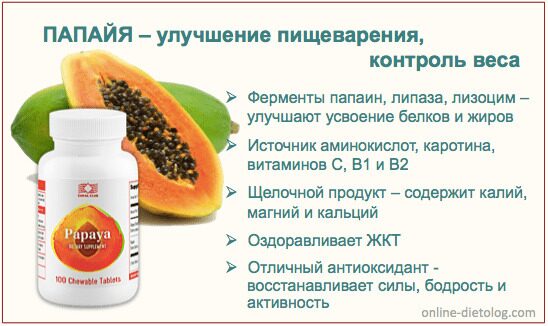 9mg 9mg | 20mg |
| Folate, total | 37µg | 24µg (0-6 months) 32µg (7-12 months) |
| Choline, total | 6.1mg | – |
| Vitamin A, IU | 950IU | 1166 IU |
| Vitamin K | 2.6µg | – |
Sources: U.S. Department of Agriculture (5) and World Health Organization (6)
Related: Vitamin C While Breastfeeding: Sources, Benefits And Effects Of Excessive Consumption
Health Benefits Of Papaya For Babies
Image: Shutterstock
Papaya has some prominent benefits for babies, as mentioned below in detail.
- Could support immunity: Papaya is considered to have nutraceutical properties. These properties are believed to enhance immunity and improve the quality of life in terms of good health. The fruit contains considerable amounts of vitamin-A, B, C, and proteolytic enzymes like papain and chymopapain.
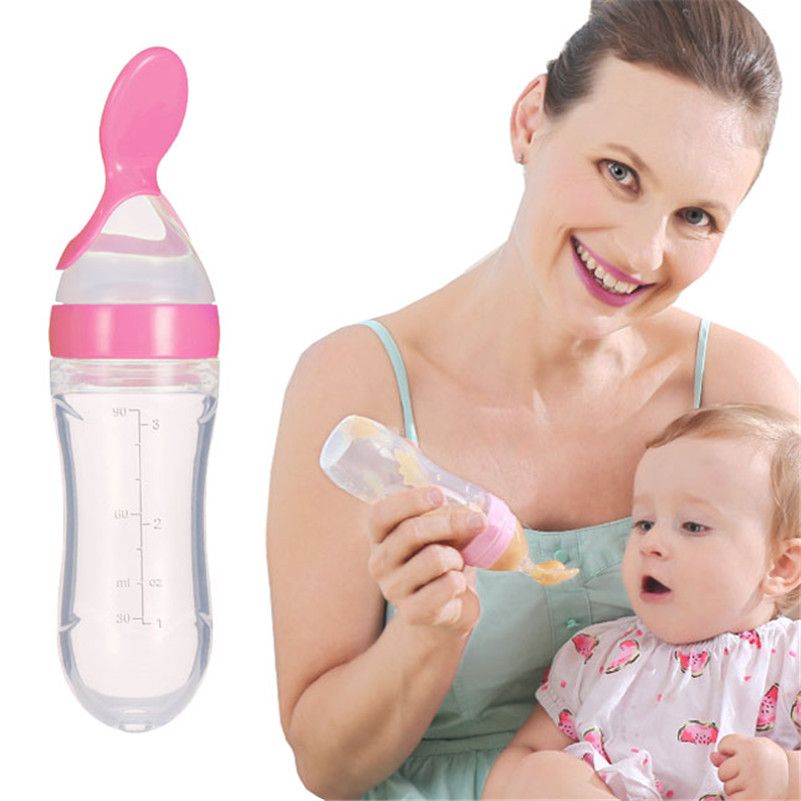 These constituents are believed to provide antiviral, antifungal, and antibacterial properties to the fruit (7).
These constituents are believed to provide antiviral, antifungal, and antibacterial properties to the fruit (7).
- Helps in digestion: In traditional medicine, papaya has been used as a remedy to treat digestive disorders. Papaya contains biologically active compounds such as papain, which is believed to help digestion (8). In addition, papaya has considerable amounts of water and fiber that could potentially help in maintaining digestive harmony by keeping constipation at bay.
Quick fact
Papain, which helps in protein digestion, is mainly present in unripe papaya (24).
Related: 10 Best Foods To Relieve Baby Constipation And Recipes To Try
- Supports healing: Papaya is believed to be helpful in healing wounds and sores. It has good amounts of vitamin-C and proteolytic enzyme, papain, which both aid in wound healing. A recent research study showed that topical application of papaya extract could possibly help in prompt wound healing (9).
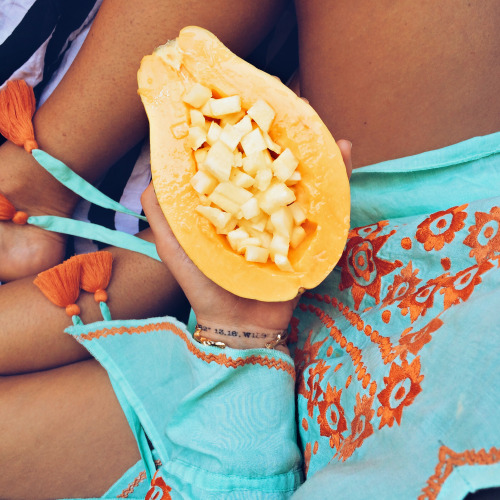
- Works against intestinal worms: Papaya is considered as one of the oldest fruit antihelmintic plants (10). However, its effectiveness was mostly anecdotal until a few years ago. But now, much in-vitro clinical research shows that certain bioactive compounds in papaya could possibly help work against gastrointestinal worms (11).
- Supports body functions: Papaya is one of the foods with considerable amounts of dietary folate. Folate is crucial for babies, as it supports many biochemical functions that are necessary for growth, development, and sustenance. The most crucial functions that folate performs are – metabolism, brain development, and DNA-RNA synthesis (12) (13).
- Supports vision: Papaya is one of the rich sources of vitamin-A, which is a vital nutrient for growth and development. In particular, vitamin-A helps in vision development that is crucial during the early years of life (14).
 A research study has shown the effectiveness of vitamin-A derivatives in treating retinal degenerative diseases (15).
A research study has shown the effectiveness of vitamin-A derivatives in treating retinal degenerative diseases (15).
- Boosts overall health: Papaya has various vital nutrients with considerable amounts of antioxidants and biologically active compounds such as papain. It also has a lipidic composition that reduces inflammatory markers (16). These valuable components of papaya make it a fruit that must be included in the diet, especially for babies.
Papaya also has considerable amounts of other micronutrients such as potassium and phosphorus, which are also important for babies.
Note: All the nutrients available in papaya can support the growth and development of your baby. However, papaya cannot be a standalone food for your baby, especially after six months of age. Introduce a variety of fruits, vegetables, and other food groups in your baby’s diet to ensure optimum nutrition.
You must also practice caution while introducing papaya in your baby’s diet. This is important as, like any other food, papaya could have its side-effects.
This is important as, like any other food, papaya could have its side-effects.
Related: 15 Games And Activities For 6-Month-Old Baby
Side Effects Of Papaya For Babies
The following are the probable side effects of papaya for babies.
- Allergy: IgE-mediated hypersensitivity via pollen inhalation and fruit consumption has been documented in the case of papaya (17). If your baby is allergic to latex, then papaya allergy is likely to happen (18). If your baby has a history of allergies or anyone in the family has a history of allergy, then pediatric consultation is wise before feeding papaya to your baby.
- Stomach ache or cramps: Unripe papaya is known to have high amounts of latex. Latex can potentially upset the stomach leading to stomach cramps and aches (19). The amount of latex is known to reduce as the fruit ripens. Therefore, it is important to serve only ripe papaya to babies.
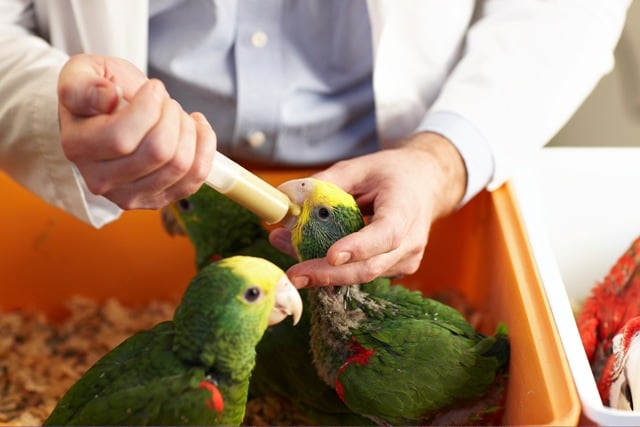
Following some precautionary steps could ensure the safe consumption of papaya for babies. So let’s check some of them in brief.
Precautions To Take While Serving Papaya To Babies
Depending upon the signs of readiness, you can start feeding papaya to the baby with the following precautions in mind (20) (3).
- Never introduce two new food items together, as the same creates confusion to determine which one is not suitable for your baby. Always follow a three to five days ‘wait and watch’ rule.
- While preparing any item with papaya, maintain hygiene as babies under two years of age are most vulnerable to infections. Therefore, wash and peel the fruit properly and remove any seeds or piths carefully.
- Select only ripe papaya to ensure easy digestibility.
- Start with the puree form of papaya. Ensure no lumps are there in the puree to avoid choking.

Image: iStock
- Initially, feed only small amounts such as a teaspoon or two.
- As the baby grows, you can give papaya as finger food, and then you can mix it with other food items such as porridge to amplify the nutritive value of the diet as a whole.
Quick tip
Papayas are almost fully yellow or orange-red in color and somewhat soft. Do not buy if you find mold or mildew where the stem was attached.
After knowing the basics about papaya, it’s time to check some recipes that you might like to try for your baby.
Quick Papaya Recipes
As you plan to give papaya to your baby, refer to the age group of your baby and choose the best way to feed. Below are some age-specific recipes that you can try.
For Babies 4-6 months
Babies between the age of four to six months have a very vulnerable digestive system. Therefore, it is wise to introduce papaya to them in puree form. Below is a recipe for papaya puree that you may like to try.
Below is a recipe for papaya puree that you may like to try.
Papaya puree
Image: iStock
You will need:
- 1 cup peeled and chopped papaya
- Water
How to:
- Blend the peeled and chopped papaya pulp in a blender. Ensure that no seeds are there in it.
- If there are any lumps, then add ¼ cup of water and blend the mixture again.
- As you see a smooth paste, transfer that in a bowl.
- Serve fresh puree to your baby and store the left-over in a steel container. Do not use a puree if it is more than two days old. You can also add breastmilk or formula milk in the puree.
For babies 6-8 months
As per WHO, you can feed half a cup of soft food two to three times a day to babies of six to eight months of age. Your baby can eat anything except honey and egg whites until the age of one year (21). So, now is the right time that you mix papaya with other foods to make a more wholesome recipe.
Papaya and blueberry yogurt
Image: Shutterstock
You will need:
- 1 cup peeled and chopped papaya
- ½ cup blueberry
- 1 cup whole milk yogurt
How to:
- Take a blender and put peeled and chopped papaya with thoroughly cleaned, de-skinned, and deseeded blueberry in it.
- Blend the mixture well. Ensure no lumps are formed.
- Now add yogurt to the mixture and blend the mixture once again until you get a smooth paste.
- Serve this delectable snack to your baby as an early evening snack.
Related: Almonds For Babies: Safety, Right Age, And Benefits
For babies 9-12 months
As your baby reaches this age group, you can start feeding soft food into small pieces instead of mashing or blending them. It is likely that by this age, your baby might even start to eat food with fingers.
Papaya pancake
Image: Shutterstock
You will need:
- 1 ½ cups multigrain flour
- 2 tsp baking powder
- 2 tbsp brown sugar
- 1 tsp kosher salt
- 1 ½ cups whole milk
- 2 large eggs
- 1 tsp extract
- 2 medium papayas (peeled, seeded and diced)
- Pure maple syrup (optional)
- ½ cup chopped almonds (optional)
How to:
- In a bowl, add multigrain flour, sugar, salt, eggs, and baking powder.
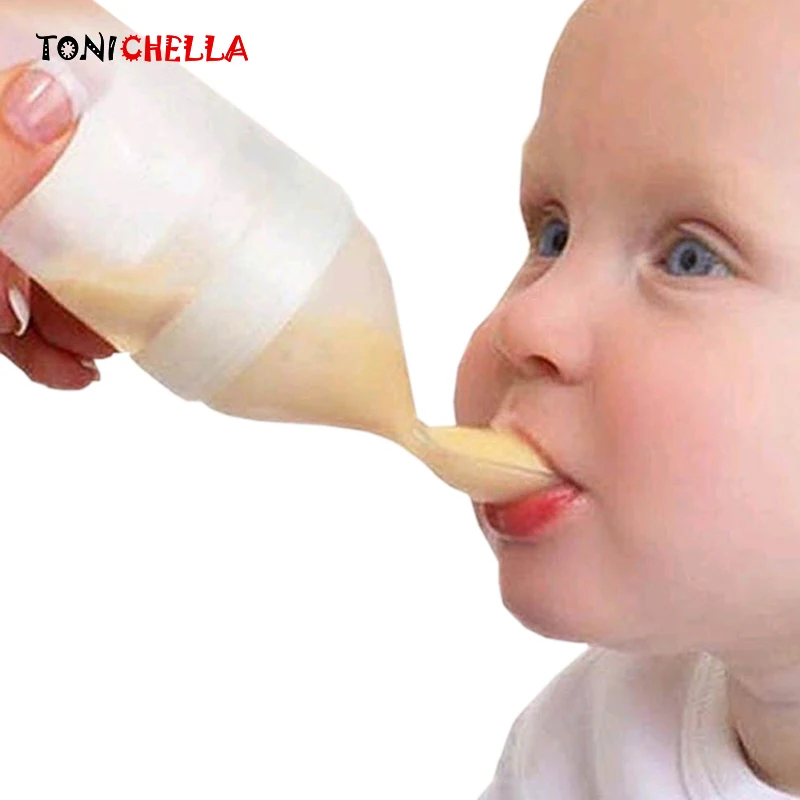 Whisk the mixture well and keep it aside.
Whisk the mixture well and keep it aside.
- Now, take a blender and add chopped almonds and diced papaya in it. Blend them together until you get a smooth paste.
- Add the blended papaya and almond mix to the mixture prepared earlier. Whisk the entire mixture again and keep it aside.
- Take a flat pan and keep it on medium heat, pour the pancake batter. Cook for a minute and flip. Cook the other side for one minute too. You can see the sides turning brown, and that is an indication that pancakes are cooked.
- Serve hot pancakes with maple syrup.
Tip: As you have added papaya to the mixture, chances are there that the pancakes might stick to the pan. In such a scenario, drizzle a few drops of oil on the pan before spreading the batter.
Quick tip
Papaya is a natural meat tenderizer and can be used in meat marinades especially when cooking for babies.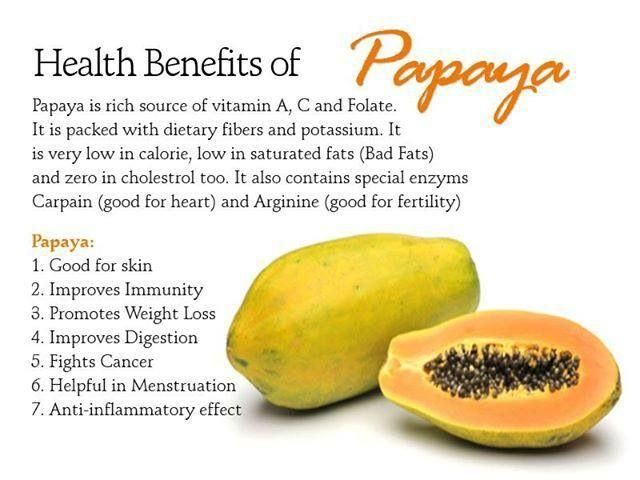
Recipes involving papaya are countless; however, choose a recipe that meets the nutritional needs of your baby.
1. Is papaya leaf juice safe for babies?
A few research studies have indicated the use of papaya leaf extract in babies but only for medical concerns such as dengue fever and thrombocytopenia. Its safety and efficacy as a herbal therapy to manage dengue and thrombocytopenia are documented (22) (23).
However, consuming papaya leaf juice otherwise is not common, especially in babies. Therefore, consult your pediatrician if you are planning to give papaya leaf juice to your baby.
2. Can babies have papaya during fever?
Babies can have papaya during fever. It is a nutritious fruit that is easy to digest and can provide your baby with essential nutrients needed to support immunity.
Papaya for babies can be introduced when the baby begins to eat solid foods such as vegetables or fruit purees. Vitamin A and carotenoids are abundant in papaya, and it helps boost immunity and digestion in babies.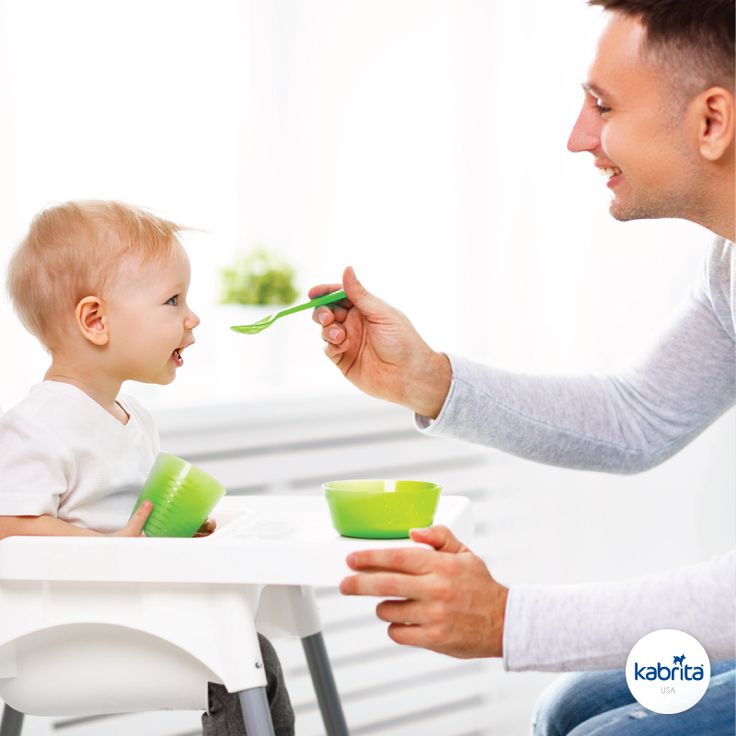 It is also known to reduce intestinal worms in babies. You may introduce papaya in small quantities and look for allergies or stomach cramps. If there are any issues, avoid giving papaya to the baby. Papaya puree, blueberry yogurt, and papaya pancakes are some baby-friendly papaya recipes.
It is also known to reduce intestinal worms in babies. You may introduce papaya in small quantities and look for allergies or stomach cramps. If there are any issues, avoid giving papaya to the baby. Papaya puree, blueberry yogurt, and papaya pancakes are some baby-friendly papaya recipes.
References:
1. Milind Parle and Gurditta, Basketful Benefits of Papaya; Researchgate
2. Papaya; National Center For Biotechnology Information
3. How to Make Homemade Baby Food; Eat Right; Academy of Nutrition and Dietetics
4. Go Tropical with Super Fruits; Eat Right; Academy of Nutrition and Dietetics
5. Papayas, raw, (SR LEGACY, 169926); Fooddata Central; USDA
6. Feeding and nutrition of infants and young children; WHO
7. Karunamoorthi Kaliyaperumal et al., Papaya: A Gifted Nutraceutical Plant – a Critical Review of Recent Human Health Research; Researchgate
8. Kadry Mohamed Sadek, Antioxidant And Immunostimulant Effect of Carica Papaya Linn. Aqueous Extract In Acrylamide Intoxicated Rats; National Center For Biotechnology Information (2012)
Kadry Mohamed Sadek, Antioxidant And Immunostimulant Effect of Carica Papaya Linn. Aqueous Extract In Acrylamide Intoxicated Rats; National Center For Biotechnology Information (2012)
9. Rachmi Fanani Hakim et al., Effect of Carica papaya Extract toward Incised Wound Healing Process in Mice (Mus musculus) Clinically and Histologically; Hindawi
10. Jerzy M Behnke et al., Developing novel anthelmintics from plant cysteine proteinases; National Center For Biotechnology Information (2008)
11. Dayane Moraes et al., In vitro efficacy of latex and purified papain from Carica papaya against Strongyloides venezuelensis eggs and larvae; National Center For Biotechnology Information (2017)
12. Lubna Mahmood, The metabolic processes of folic acid and Vitamin B12 deficiency; Journal of Health Research and Review In Developing Countries
13. Folate; National Institute of Health; U.S Department of Health and Human Services
14. Vitamin A; FAO
Vitamin A; FAO
15. Lindsay Perusek and Tadao Maeda, Vitamin A Derivatives as Treatment Options for Retinal Degenerative Diseases; National Center For Biotechnology Information (2013)
16. Lidiani F. Santana et al., Nutraceutical Potential of Carica papaya in Metabolic Syndrome; National Center For Biotechnology Information (2019)
17. Moumita B. Sarkar et al., Cari p 1, a Novel Polygalacturonase Allergen From Papaya Acting as Respiratory and Food Sensitizer; National Center For Biotechnology Information (2018)
18. Latex Allergy; American College of Allergy, Asthma & Immunology
19. G et al., Traditional and Medicinal Uses of Carica papaya; Journal of Medicinal Plant Studies (2013)
20. Tips to Keep Your Child Healthy; Healthy Children; American Academy of Nutrition
21. Feeding your baby: 6–12 months; UNICEF
22. Chandra Prakash Kala; Leaf Juice of Carica papaya L. : A Remedy of Dengue Fever; Medicinal And Aromatic Plants
: A Remedy of Dengue Fever; Medicinal And Aromatic Plants
23. Aakash Pandita et al., Use of papaya leaf extract in neonatal thrombocytopenia; Wiley Online Library
24. Papain: Nature’s Own Digestive Aid; Winchester Hospital
The following two tabs change content below.
- Reviewer
- Author
Can Durian Fruit Cure Infertility?
Can Durian Fruit Cure Infertility?
Potassium During Pregnancy: Is It Good Or Bad For You
Potassium During Pregnancy: Is It Good Or Bad For You
Mango For Babies: Nutritional Value, Benefits, And Recipes
Mango For Babies: Nutritional Value, Benefits, And Recipes
Can Babies Have Turmeric? Health Benefits And Precautions
Can Babies Have Turmeric? Health Benefits And Precautions
Eating Chocolate During Pregnancy: Is It Safe And How Much To Eat?
Eating Chocolate During Pregnancy: Is It Safe And How Much To Eat?
9 Simple Steps To Prepare Prune Puree For Your Baby
9 Simple Steps To Prepare Prune Puree For Your Baby
Is It Safe To Have Pomegranate & Pomegranate Juice During Pregnancy?
Is It Safe To Have Pomegranate & Pomegranate Juice During Pregnancy?
Ginger For Babies: When To Start, Benefits And Precautions
Ginger For Babies: When To Start, Benefits And Precautions
Spinach (Palak) During Pregnancy: Health Benefits And Possible Side Effects
Spinach (Palak) During Pregnancy: Health Benefits And Possible Side Effects
Papaya for Babies – Health Benefits, Recipes & Feeding Precautions
The health benefits of papaya are undisputed.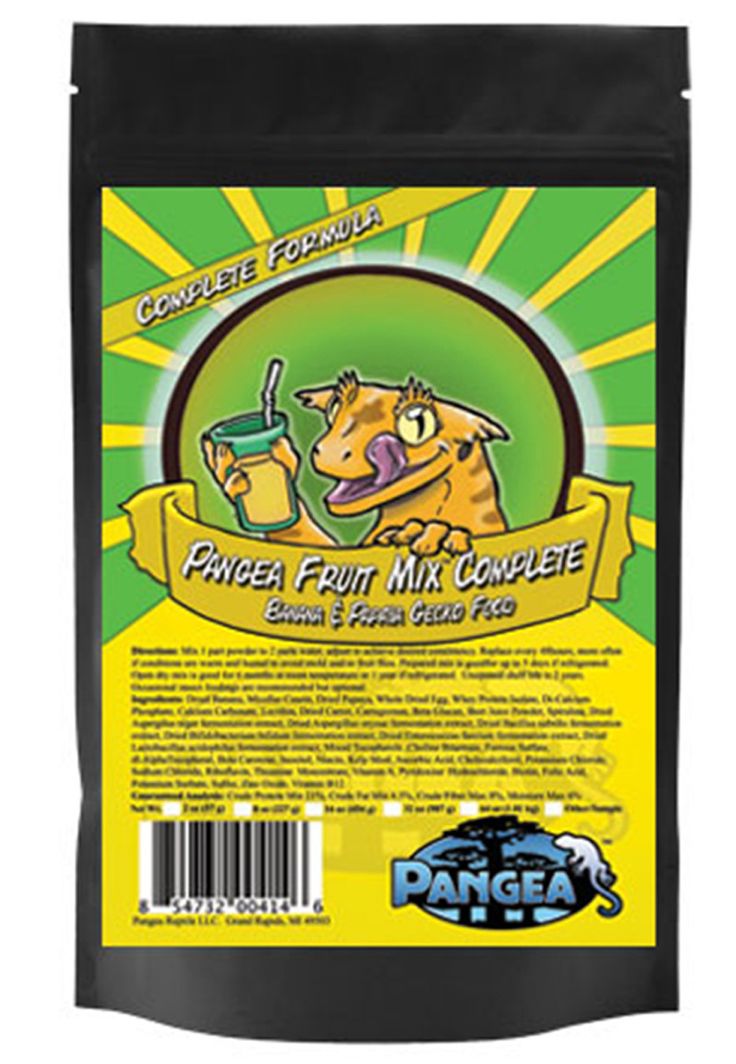 It is rich in antioxidants, and young and old alike can benefit from its anti-inflammatory properties as well as its immunity-building nutrients. This vibrantly-coloured fruit grows in tropical climates and is usually available all round the year. Their soft, fleshy texture also makes them a suitable ingredient in many recipes. Here is how you can make sure your baby gets all the nutrients that this delicious fruit has to offer.
It is rich in antioxidants, and young and old alike can benefit from its anti-inflammatory properties as well as its immunity-building nutrients. This vibrantly-coloured fruit grows in tropical climates and is usually available all round the year. Their soft, fleshy texture also makes them a suitable ingredient in many recipes. Here is how you can make sure your baby gets all the nutrients that this delicious fruit has to offer.
Video: Papaya for Babies – Benefits and Recipes
When Can You Feed Papaya to Your Baby?
Papaya is a great fruit to add to your baby’s diet only after you have first started him on other food like bananas, avocados, sweet potatoes, and squash. They are all easily digested, and once your baby has tolerated them well, you can gradually introduce papaya. The best time to include papaya to your baby’s diet is around 7 to 8 months of age.
The best time to include papaya to your baby’s diet is around 7 to 8 months of age.
Adding papaya to your little one’s diet can help you enhance its nutritional value. A break up of the nutritional value of the fruit is provided below. Further on, we shall also take a look at the health benefits papaya has for your baby.
Nutritional Value of Papaya
A single medium-sized papaya can be a powerhouse of nutrients as it consists of Vitamins A, B and C, folate, magnesium, copper, iron, calcium, potassium, lycopene and phosphorus.
Take a look at the table to see the nutrients one cup of mashed ripe papaya has:
| Vitamins
| Minerals |
| Vitamin A – 2185 IU | Potassium – 419 mg |
| Vitamin B1 (thiamine) – .06 mg | Phosphorus – 23 mg |
| Vitamin B2 – (riboflavin) – .07 mg | Magnesium – 48 mg |
| Niacin – .82 mg | Calcium – 46 mg |
Vitamin C – 140.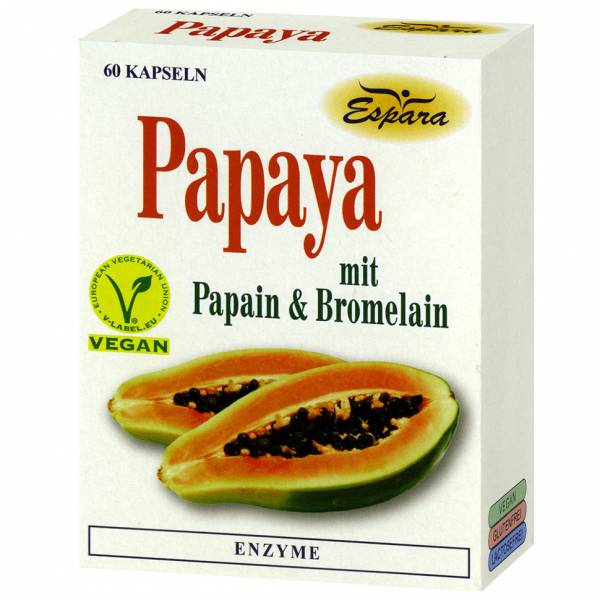 1 mg 1 mg | Sodium – 18 mg |
| Vitamin K – 6 mcg | Iron -.57 mg |
| Folate – 1 mcg | It also has small amounts of minerals like zinc, manganese, and copper. |
| It also has small amounts of other vitamins. |
Source: http://wholesomebabyfood.momtastic.com/papayababyfoodrecipes.htm
Health Benefits of Papaya for Your Baby
Besides packing in a punch of nutrients and vitamins, there are plenty of benefits your baby can gain from eating papaya. However, the fruit is recommended only for the babies who have been weaned on to solids (7 or 8 months of age).
Here’s how papaya can benefit your baby’s health:
1. Boosts Digestion
The enzyme papain present in this fleshy fruit is useful in breaking down complex food structures. Regular consumption of papaya can improve your child’s digestion capabilities significantly.
2. Enhances Immunity
A baby’s immune system is not as developed as that of an adult, which makes them susceptible to infections and ailments. Vitamin C in papaya boosts your child’s immunity and helps prevent sickness.
Vitamin C in papaya boosts your child’s immunity and helps prevent sickness.
3. Useful in Healing Skin Sores
The abundance of Vitamin A in papaya keeps skin protected from burns, ulcers, and sores. The pulp of this fruit can also be applied topically on minor burns and rashes. This will help reduce the burning sensation.
4. Improves Metabolism
The fruit is a rich source of folates, which are necessary for the production of amino acids. This can, to some extent, lower the risk of cardiovascular diseases in adulthood, and belly aches in babies.
5. Ensures Regular Bowel Movement
The fibre content of papaya acts as a natural laxative and can ensure consistent bowel movements in your baby. The use of papaya for constipation in babies is a time-tested remedy.
6. Gets Rid of Intestinal Worms
Two spoons of a mixture of dried and powdered papaya seeds combined with honey can help do away with intestinal worms. The seeds have an enzyme called cysteine proteinases, which can help get rid of intestinal worms.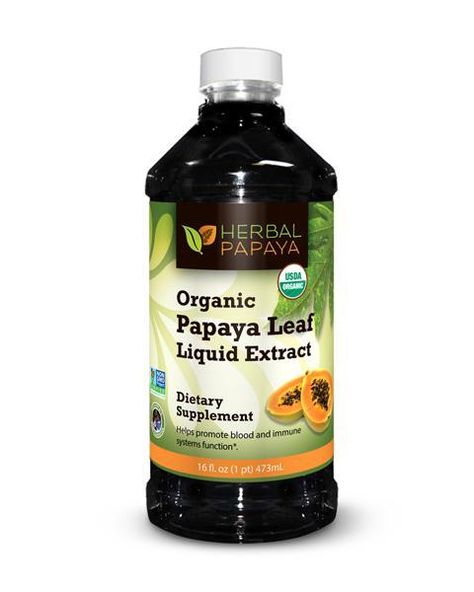
7. Good for the Eyes
Vitamin A in papaya helps promote good vision and prevent problems such as night blindness.
8. Promotes Red Blood Cells
The presence of iron helps maintain good haemoglobin levels and a stable red blood cell count.
With all these benefits, papaya is sure to top the charts in the list of highly nutritional fruits for babies. However, parents need to take some precautions when feeding this fruit to their little ones. Read on for more information.
Precautions to Take When Feeding Papaya to Babies
As with any new food, you need to introduce papaya to your baby slowly and carefully. See how your baby likes the taste of the fruit and how their digestion is after consuming it. Start off with a small amount (one teaspoon) and slowly increase it over a few days.
Here are some more things you must keep in mind before you feed papaya to your baby:
- See that the fruit is ripe enough to consume. Unripe papayas can cause stomach aches and cramps.
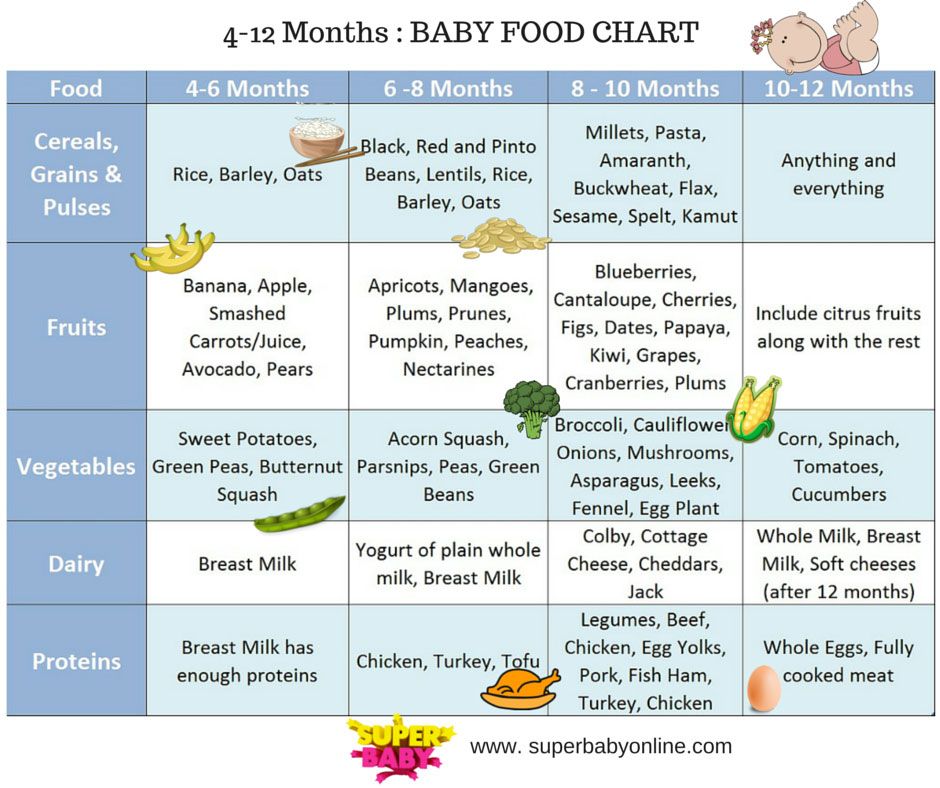
- Limit the quantity to a couple of tablespoons since too much of papaya can also cause a belly ache in babies.
- Make sure to stop if your baby doesn’t like papaya or shows signs of discomfort or reaction after consuming the fruit.
- Ensure your baby doesn’t have latex allergies as they may be cross-reactive to the fruit.
Once you are sure that it is safe for you to feed papaya to your little one, you must carefully pick the fruit to create some delicious papaya baby food recipes, some of which we have shared below. But first, here are some tips that can help you choose papaya for your baby.
Tips to Buy the Right Papayas for Your Baby
The papaya you use for your baby food needs to be ripe and just right. Here are some tips for buying them:
- Don’t buy papayas that are green and hard because they will take time to ripen and may even get bad before that. Only those that have yellow patches on them when plucked off the tree will eventually ripen.
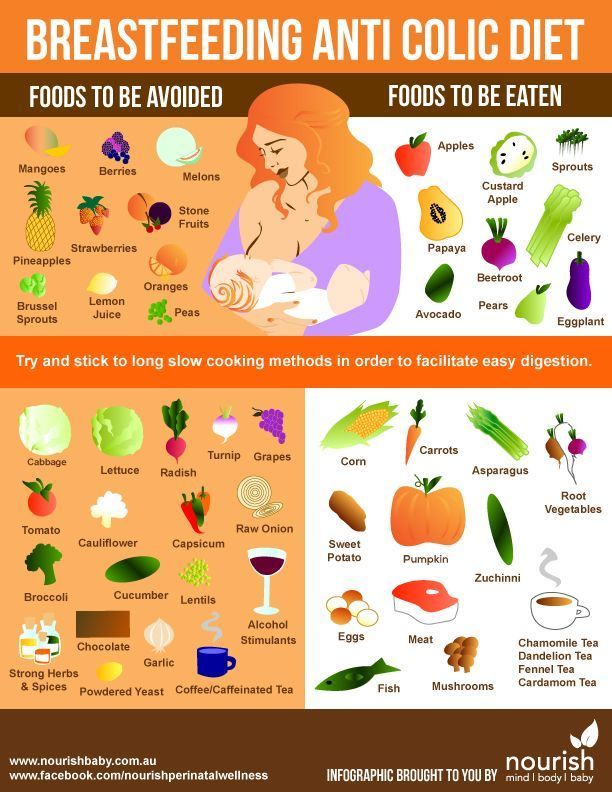
- Papayas that are ready to eat will have an orange colour with a little bit of red in it. It will be firm but soft when pressure is applied and will have a mild, sweet fragrance.
- Too much fragrance means the fruit has over-ripened and will spoil soon. If you are planning to use the papaya after a few days, then go for the ones with yellow patches.
Now that you are all set to choose the right papaya fruit, let’s take a look at some delicious papaya baby food recipes to add some variety to your baby’s diet.
Easy Papaya Recipes for Your Baby
Even babies need some variety in their meals, and this is why you should use papaya in different ways while cooking for your baby. Here are some great papaya baby food recipes for you to try out:
1. Papaya Mash
Ingredients:
- One Ripe Papaya
Method:
- Peel and de-seed the papaya before you cut it into big cubes.
- Simply mash or make a puree in a blender till you get a smooth consistency.
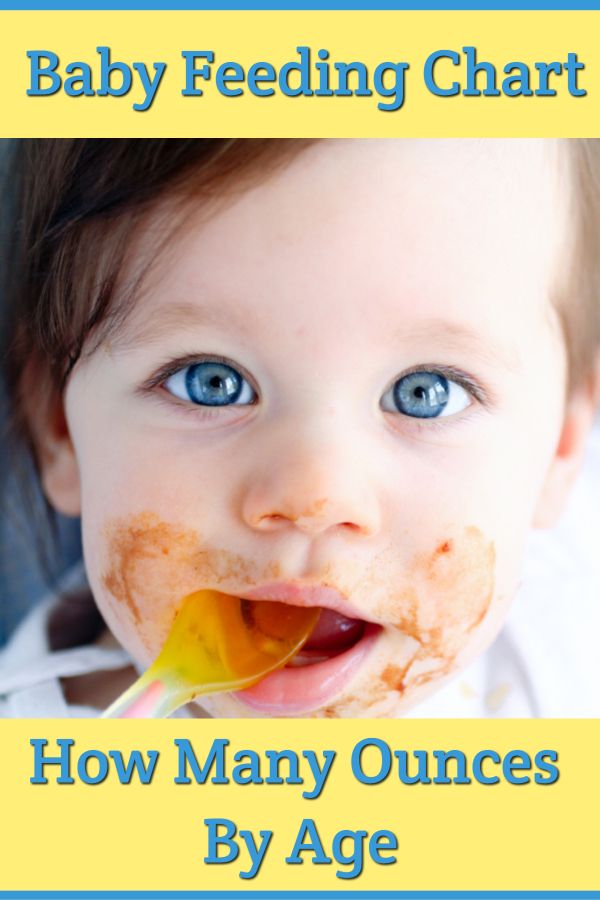
The papaya chunks can be first steamed if you want them softened up a bit for quicker digestion.
2. Cantaloupe and Papaya Smoothie/Milkshake for Babies
Ingredients:
- 2 tbsp natural yoghurt or 1/4th cup milk
- 1 tbsp diced watermelon or cantaloupe
- 1 tbsp diced papaya
Method:
- Cut the fruits into big pieces and put them in a blender.
- Add the yoghurt to make a smoothie or the milk to make a milkshake.
- The smoothie/milkshake can also be stored in the refrigerator for a few hours.
3. Fruity Breakfast Treat
Ingredients:
- 2 tbsp oatmeal prepared in advance
- 1 tbsp papaya; can be pureed or diced
- 1/2 small banana, sliced
Method:
- Boil the oatmeal in some breast milk till it softens.
- Blend all the ingredients until you get your desired consistency.
- You can steam the papaya if needed.
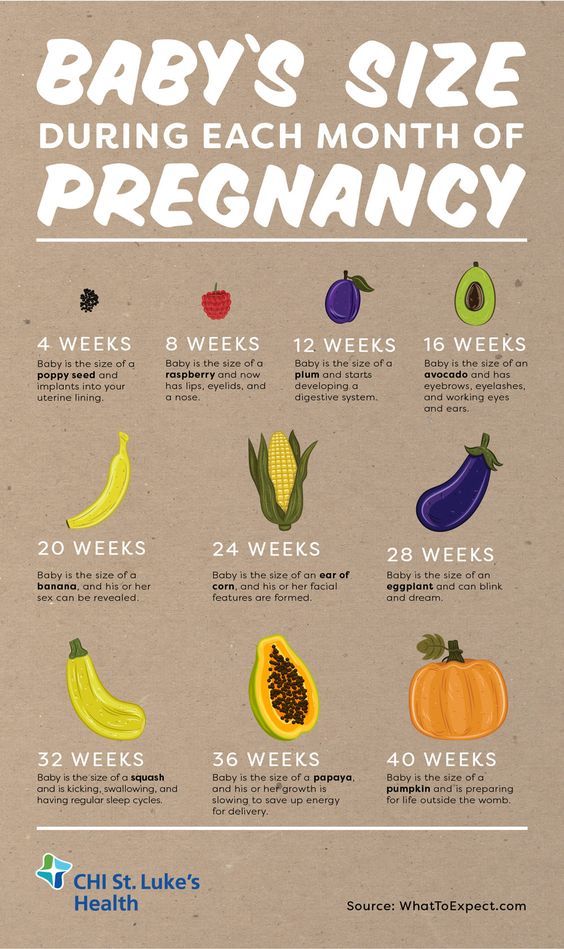
4. Papaya Carrot Mash
Ingredients:
- 1/2 cup cubed ripe papaya
- 1/2 cup carrots
Method:
- Steam the cubed papaya and diced carrot till they are soft.
- Mash the ingredients together.
- Your papaya carrot mash is ready.
5. Papaya Mango Puree
Ingredients:
- 1/2 cup cubed ripe papaya
- 1/2 cup ripe mango cubes
Method:
- Steam the cubed papaya.
- Mash the papaya and the mango.
Papaya is a delicious and nutritious food when ripe. It can be eaten as is or used along with a variety of other fruits to make delicious dishes. Avocados, apples, bananas, peaches, carrots, yoghurt, and chicken are just some of the foods that go well with papaya in baby food recipes.
Disclaimer: Each baby is different as far as development goes, and this information is just a guide and not a substitute for medical advice from a qualified professional.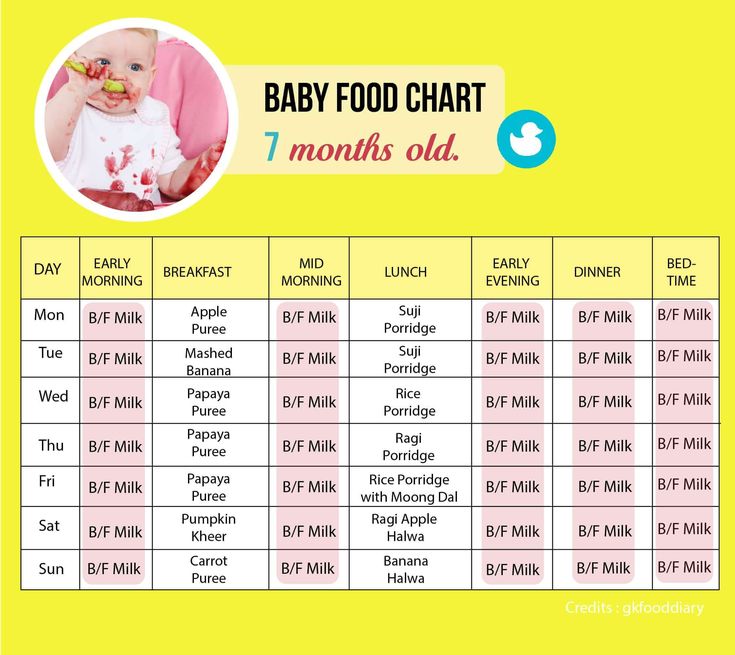
References:
- Healthline
Also Read:
Finger Foods for Babies
Weight Gain Foods for Babies & Kids
Starting Solid Food to Babies
Papaya for Babies: Amazing Benefits and Food Recipes
There are many health benefits to papaya Undeniably. It is rich in antioxidants, and both young and old can benefit from its anti-inflammatory properties as well as immune-boosting nutrients. This brightly colored fruit grows in tropical climates and is usually available all year round. Its smooth, soft texture also makes it a suitable ingredient in many recipes. Here's how you can make sure your child is getting all the nutrients this delicious fruit has to offer. nine0003
Giving papaya to your child
Papaya is a great fruit to add to your child's diet, but only after he starts eating other foods like banana, avocado, sweet potato and pumpkin. It's all easy digestion. Once your child is comfortable with it, you can slowly introduce papaya.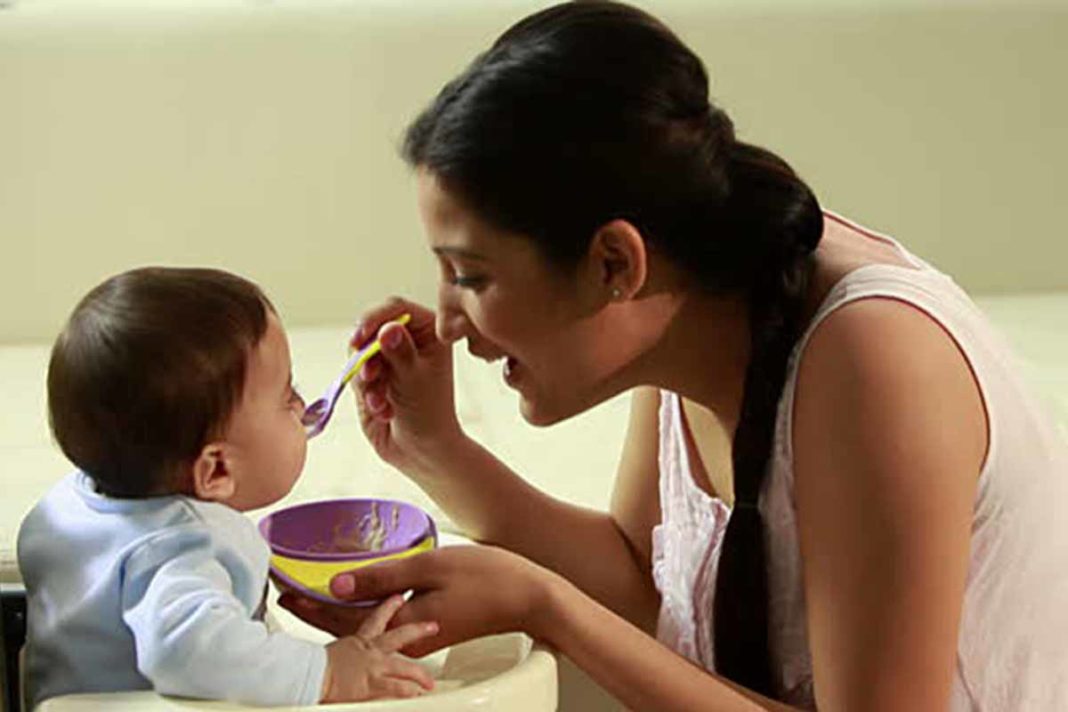 The best time to include papaya in your baby's diet is around 7 to 8 months.
The best time to include papaya in your baby's diet is around 7 to 8 months.
papaya nutritional value
A medium-sized papaya can be a source of nutrition. Vitamins A, B and C. Folic acid, magnesium, copper, iron, calcium, potassium, lycopene and phosphorus are found in papaya.
Look at the table to see how many nutrients are in one cup of raw papaya puree:
| Vitamins
| minerals |
| Vitamin A - 2185 units | Potassium - 419mg |
| Vitamin B1 (thiamine) - 06 mg | Phosphorus - 23 mg |
| Vitamin B2 - (riboflavin) - 07 mg | Magnesium - 48 mg |
| Niacin - 82 mg | Calcium - 46 mg |
| Vitamin C - 140.1 mg | Sodium - 18 mg |
| Vitamin K - 6 mcg | Iron -57 mg |
| Folic acid - 1 mcg | It also contains small amounts of minerals such as zinc, manganese and copper.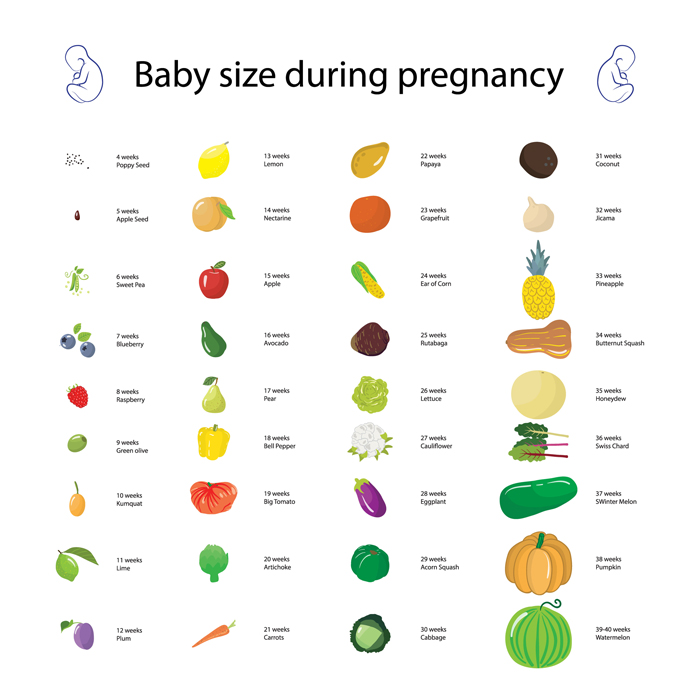 nine0026 nine0026 |
| It also contains small amounts of other vitamins. |
The Best Health Benefits of Papaya for Your Baby
In addition to its many nutrients and vitamins, papaya is very beneficial for babies. Papaya is not recommended for a 5 month old baby despite its many benefits and should ideally be introduced after 7 or 8 months. Here are some of the things papaya can do for your child's health:
1. Promotes digestion
The papain enzyme contained in this poisonous fruit is useful in breaking down complex nutritional structures. Regular consumption of papaya can improve your child's ability to digest Significantly.
2. Increases immunity.
A child's immune system is not as developed as an adult's, making it vulnerable to infection and disease. promote growth Vitamin C. Papaya strengthens your child's immune system and helps prevent disease. nine0003
3. Useful in healing skin ulcers.
The abundance of vitamin A in papaya keeps the skin Protected from burns and ulcers. The skin or pulp of papaya can also be used topically for burns. And rash. This will help reduce the burning sensation.
The skin or pulp of papaya can also be used topically for burns. And rash. This will help reduce the burning sensation.
4. Improves metabolism.
Papaya is a rich source of folic acid, essential for the production of amino acids. This may reduce the risk of cardiovascular disease in adulthood to some extent. Abdominal pain in children. nine0003
5. Provides regular bowel movements.
Papaya fiber serves as a natural laxative. This can help keep your baby's bowel moving. The use of papaya for constipation in children is a time-tested remedy.
6. Get rid of intestinal worms.
Two tablespoons of a mixture of dried papaya seeds and powder with honey will help get rid of intestinal worms. This is due to the presence of cysteine enzyme proteins.
7. Good for the eyes
The vitamin A in papaya promotes good eyesight and prevents problems such as night blindness.
8. Increases the level of red blood cells.
The presence of iron helps to maintain a good hemoglobin level and a stable red blood cell count.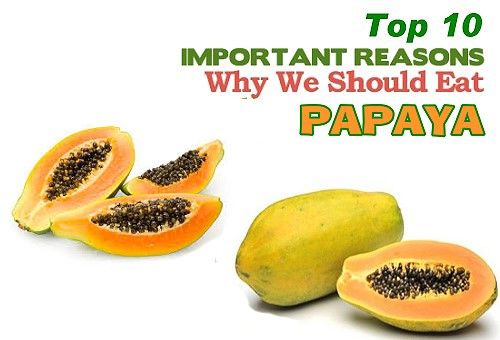
Papaya Feeding Precautions
As with any new food, you need to introduce papaya to your child slowly and carefully. See how your child likes the taste of fruit and how he digests it after he has eaten it. Start with a small amount and gradually increase it over several days. Here are some things to keep in mind before feeding your baby papaya:
- Make sure the fruit is ripe for consumption. Unripe papaya can cause stomach pain and cramps.
- Reduce to a few tablespoons because too much papaya can cause stomach pain in children.
- Be sure to stop if your child does not like papaya or has any discomfort or reaction after eating the fruit.
Easy papaya recipes for your baby
Even babies need variety in their food, so you should use papaya in different ways when preparing for your baby. But the papaya you add to your baby food needs to be perfectly ripe and just right. Here are some tips for buying the right papaya:
- Don't buy green tough papayas because they take time to ripen and may fester before they do, only those that show yellow spots when picked from the tree will eventually ripen.
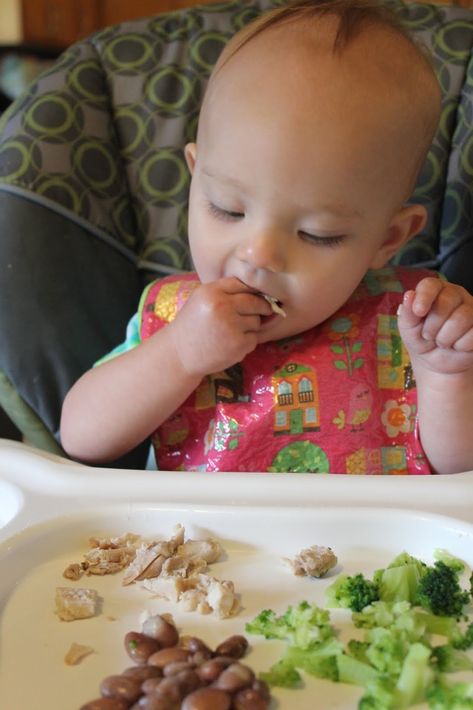
- Ready-to-eat papaya will be orange in color with some red. It will be firm but soft when pressed and will have a pleasant, light scent.
- If the aroma is too strong, the fruit is ripe and will spoil soon. If you plan on using papaya in a few days, don't buy it. nine0140 In addition to regular baby papaya puree, here are some great papaya recipes you can try:
1. Papaya Puree
ingredients: You will need a ripe papaya
method:
- Peel a ripe papaya and remove the seeds before cutting it into large cubes.
- Simply puree or blend as smooth as you like, according to your child's preference. nine0124
- Papaya can be chopped first if you want to dilute it a little for faster digestion.
2. Melon and papaya yogurt for babies.
Ingredients:
- 2 tablespoons of natural yogurt or a glass of milk
- 1 tablespoon diced watermelon or melon
- 1 tablespoon papaya cubes
Fruit is cut into large pieces and put in a blender along with yogurt to make a smoothie and milk to make yogurt.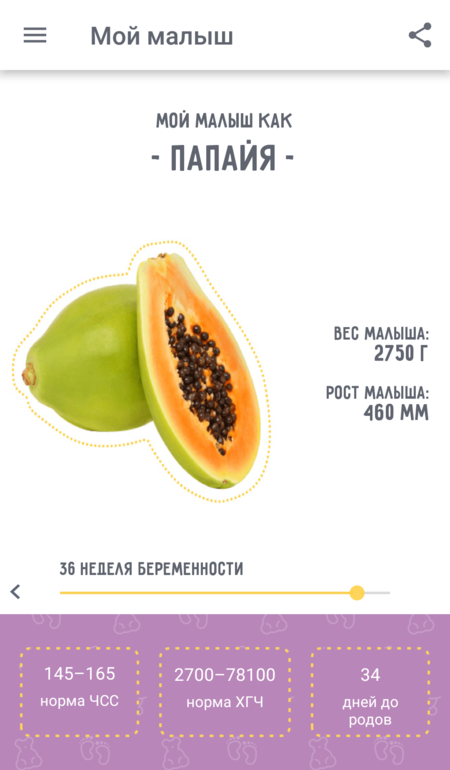 nine0003
nine0003
3. Fruit breakfast
Ingredients:
- 2 tablespoons of oatmeal beforehand
- 1 tablespoon papaya; It can be mashed or diced
- Half a small banana slice
Simply mix all the ingredients to give your child a healthy start to the day.
Ripe papayas are delicious and nutritious food. It can be eaten as is or used with a variety of other fruits to make delicious dishes. Avocados, apples, bananas, peaches, carrots, yogurt, and chicken are just some of the foods that pair well with papaya in baby food recipes. nine0003
Evacuation Responsibility: Every child is different in what they present and this information is only a guide and not a substitute for medical advice from a qualified professional.
Papaya Fruit for Kids: Amazing Benefits and Healthy Recipes
Papaya Fruit It has undeniable health benefits. It is rich in antioxidants and both young and old can benefit from its antioxidant properties. inflammatory as well as nutrients to strengthen the immune system and Immunity You have. nine0003
inflammatory as well as nutrients to strengthen the immune system and Immunity You have. nine0003
This brightly colored fruit grows in tropical climates and is usually available all year round. Its soft and bright texture also makes it a suitable ingredient in many recipes. Here's how you can make sure your child is getting all the nutrients this delicious fruit has to offer.
Giving papaya to your child
Papaya This is a great fruit to add to your child's diet, but before you start adding it to your child's food, be sure to add it after other foods such as Avocado banana, sweet potatoes and zucchini. Complete to digest All these fruits are easy, and once your child responds well to them, you can slowly introduce papaya. The best time to include papaya in your baby's diet is between 7 and 8 months. nine0003
Nutritional value of papaya
يمكن papaya One medium size to be rich in nutrients. vitamins A, B and C. Also present are folic acid, magnesium, copper, iron, calcium, potassium, lycopene and phosphorus.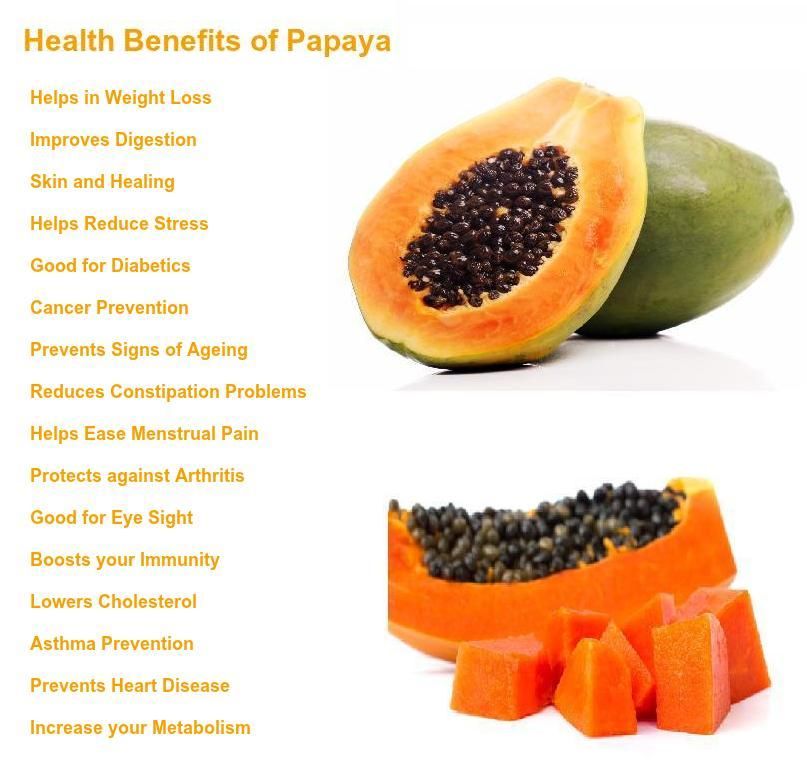
Take a look at the following chart to understand the nutritional value and nutrient content of one cup of raw papaya puree:0140 Vitamin B2 - (riboflavin) - 0.07 mg
Niacin - 82 mg
Vitamin C - 140.1 mg
Vitamin K - 6 mcg
Folic acid - 1 mcg
Potassium - 419 mg
Phosphorus - 23 mg
Magnesium - 4 Calcium - 46mg
Sodium - 18mg
Iron -57mg
The Best Health Benefits of Papaya for Your Baby
In addition to its many nutrients and vitamins, papaya is very beneficial for babies. Papaya is not recommended for a 5 month old baby despite its many benefits and should ideally only be introduced after 7 or 8 months. Here are some of the things papaya can do for your child's health:
1. Promotes Digestion
The enzymatic membrane present in this delicious fruit is helpful in breaking down complex food structures. Regular consumption of papaya can improve your child's digestion ability Significantly.
2.
 Increases immunity.
Increases immunity. A child's immune system is not as developed as an adult's, making it vulnerable to infection and disease. Increases Vitamin C Levels in Papaya Your child's immunity helps in preventing disease. nine0003
3. Useful in healing skin ulcers.
The abundance of vitamin A in papaya protects the skin from burns and ulcers. The skin or pulp of papaya can also be used topically for burns and skin rashes. This will help reduce heartburn.
4. Improves metabolism.
Papaya fruit is a rich source of folic acid, essential for the production of amino acids that may reduce the risk of cardiovascular disease in adulthood.
5. Provides regular bowel movements. nine0087
The fiber in papaya acts as a natural laxative and can help keep your baby's bowel moving. The use of papaya to treat constipation in children has been proven over time.
6. Gets rid of intestinal worms
Two tablespoons of a mixture of dried and crushed papaya seeds can help get rid of intestinal worms.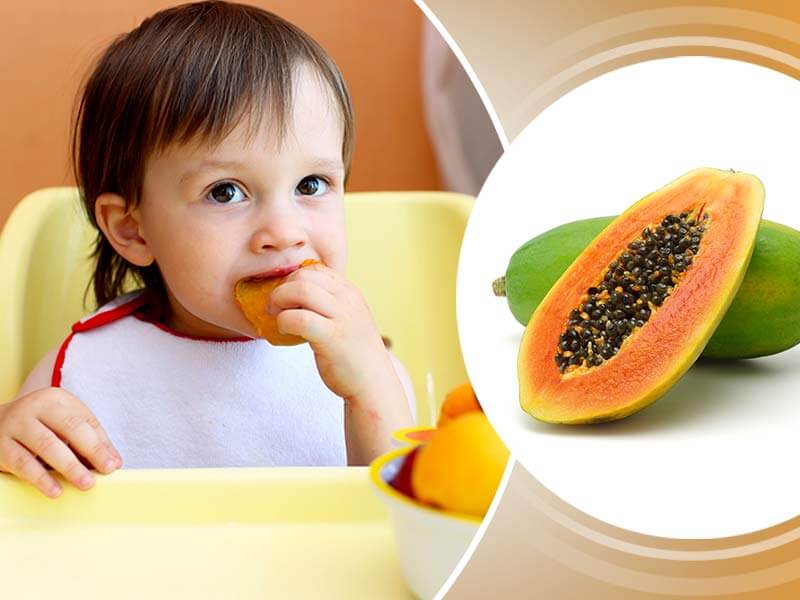 This is due to the presence of prostate cysteine proteins.
This is due to the presence of prostate cysteine proteins.
7. Good for the eyes.
The vitamin A in papaya helps promote good vision and prevent problems like night blindness. nine0003
8. Increases the level of red blood cells.
The presence of iron helps to maintain a good hemoglobin level and a stable red blood cell count.
Papaya Feeding Precautions
As with any new food, papaya should be introduced slowly and carefully into a child's diet. See how your child likes the taste of the fruit and how it is digested after eating it. Start with a small amount and gradually increase it over several days. Some other things to keep in mind before feeding papaya to your child include the following:
- You see that the fruit is ripe enough to eat. Unripe papaya can cause stomach pain and cramps.
- Reduce to
- tablespoons because too much papaya can cause stomach pain in babies.
- Be sure to stop if your child does not like papaya or has any discomfort or reaction after eating the fruit.
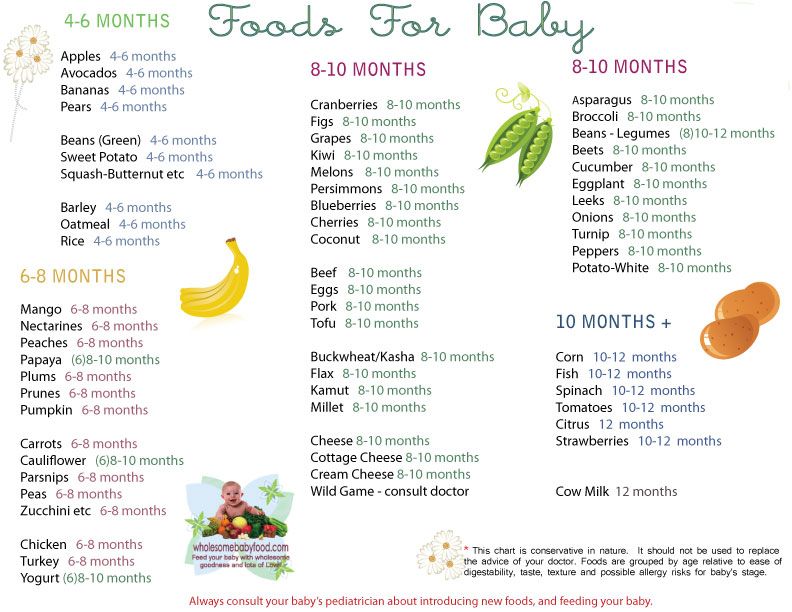
Easy Papaya Recipes for Your Baby
Even babies need a varied diet, so papaya should be used in a variety of ways when preparing meals for your baby. But the papaya that you use for your child's food should be ripe and healthy. Here are some tips for buying the right papaya:
- Do not buy green, hard papaya because it will take time to ripen and may spoil before it does. Only those with yellow spots will ripen if they are plucked from the tree.
- Ready-to-eat papaya will be orange in color with some red. When pressed, it will be firm but soft and will have a slight sweet smell.
- Too many spirits means that the fruits are ripe and will soon spoil. If you plan to use papaya in a few days, choose those that have yellow spots. nine0124
In addition to regular papaya flour for kids, here are some great papaya meal recipes you can try:
1. Ground papaya.
ingredients:
- You will need one ripe papaya.
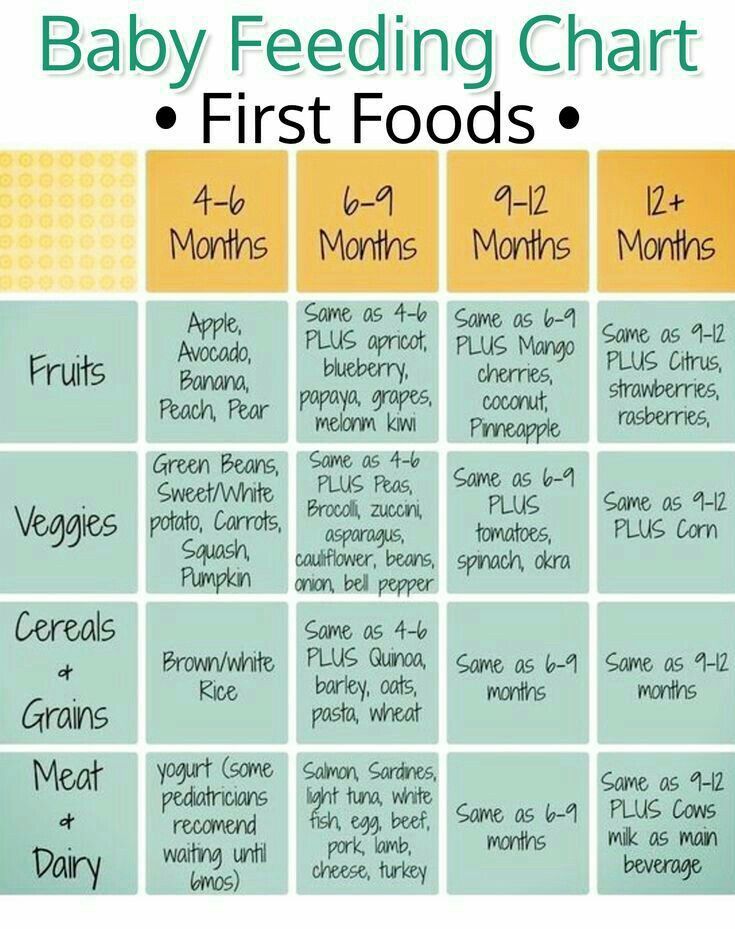
Method:
- Clean and sow ripe papaya seeds before cutting them into large cubes.
- Simply blend or puree as smooth as you like, depending on your child's preference. nine0124
- Papaya pieces may wear off first if you want to dilute them a little to make them easier to digest.
2. Cantaloupe and papaya milk for babies.
ingredients:
- 2 tablespoons natural yoghurt or 1/4 cup milk
- 1 tablespoon diced melon or cantaloupe
- 1 tablespoon papaya cubes
Cut fruit into large pieces and put them in a blender along with yogurt to make a milk smoothie to make yogurt. nine0003
3. Fruit breakfast
Ingredients:
- 2 tablespoons oatmeal ready
- 1 tablespoon papaya
- 1/2 slice banana small
Simply mix all the ingredients to give your child a healthy start to the day.
Ripe papaya is a delicious and nutritious food.